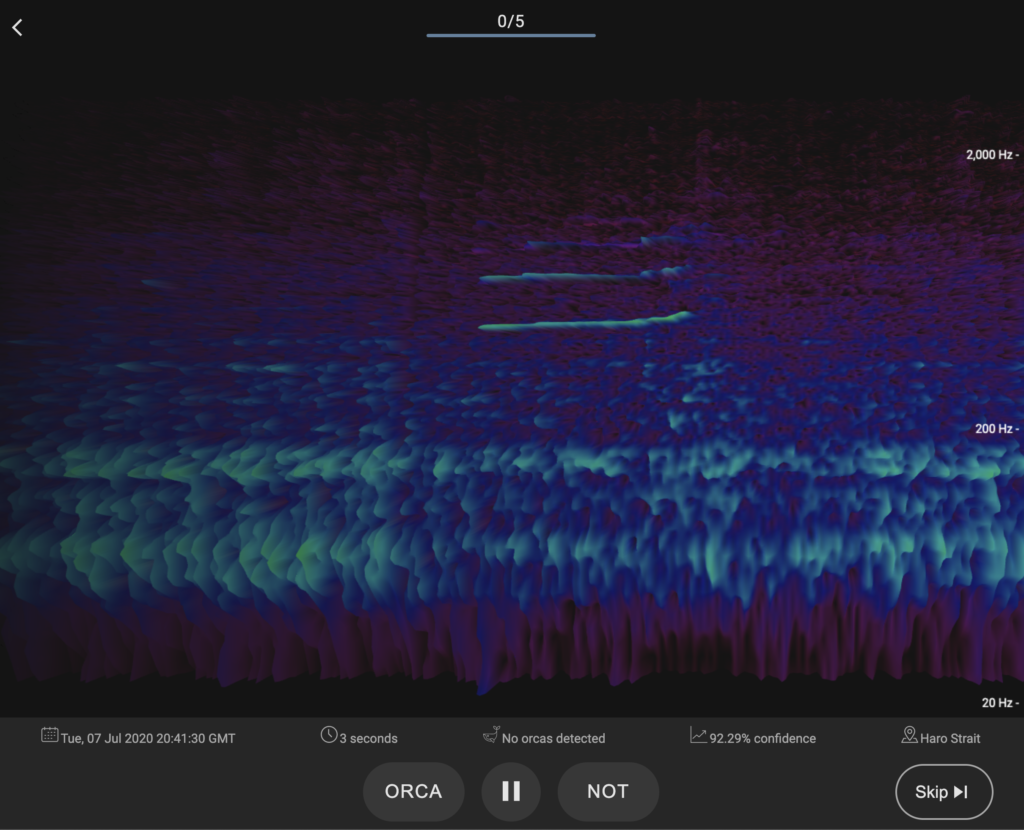First developed in 2020 by Google Summer of Code students Diego Rodríguez and Kunal Mehta, OrcaAL is an “active learning” tool. It lets you teach a machine learning model to recognize orca signals & observe how its performance evolves.
- The machine presents you with audio samples that it finds confusing.
- You help label the sounds, collaborating with a “crowd” of other human annotators.
- After enough samples are labeled, the machine re-trains itself using the new data, then generates a new list of sounds that confuse it.
- Repeat!

Open-source code
Implementations
Presentations & products
Mar 8, 2022: DCLDE Oahu talk
Valentina Staneva pre-recorded a talk for the DCLDE 2022 session on “Software to enable DCLDE.” (DCLDE = Detection, Classification, Localization, and Density Estimation). Here is the slide deck:
The co-authors were: Kunal Mehta, Jose Giraldo, Diego Rodriguez, Jesse Lopez, Val Veirs, Scott Veirs, and Valentina Staneva.
Sep 2021: 3rd NOAA workshop on “Leveraging AI in the Environmental Sciences”
(virtual, pre-recorded)
Dec 2020: Acoustical Society of America talk
(virtual, pre-recorded, live Q&A)
Dec 2020: Meridian webinar on “Sound detection and classification with deep learning”
Collaborators
- Google Summer of Code students
- Kunal Mehta (2020)
- Diego Rodríguez (2020)
- Orcasound mentors (see also the Orcasound GSoC organization page)
- Valentina Staneva (University of Washington, eScience Institute)
- Jesse Lopez (Axiom Data Science)
- Abhishek Singh (Google Summer of Code 2019 alum)
- Dan Olsen (North Gulf Oceanic Society)
- Hannah Meyers (University of Alaska)
- Val Veirs (Beam Reach)
- Scott Veirs (Beam Reach)
More info:
- AI for Orcas project page at Orcasound (including links to blog posts by GSoC students)